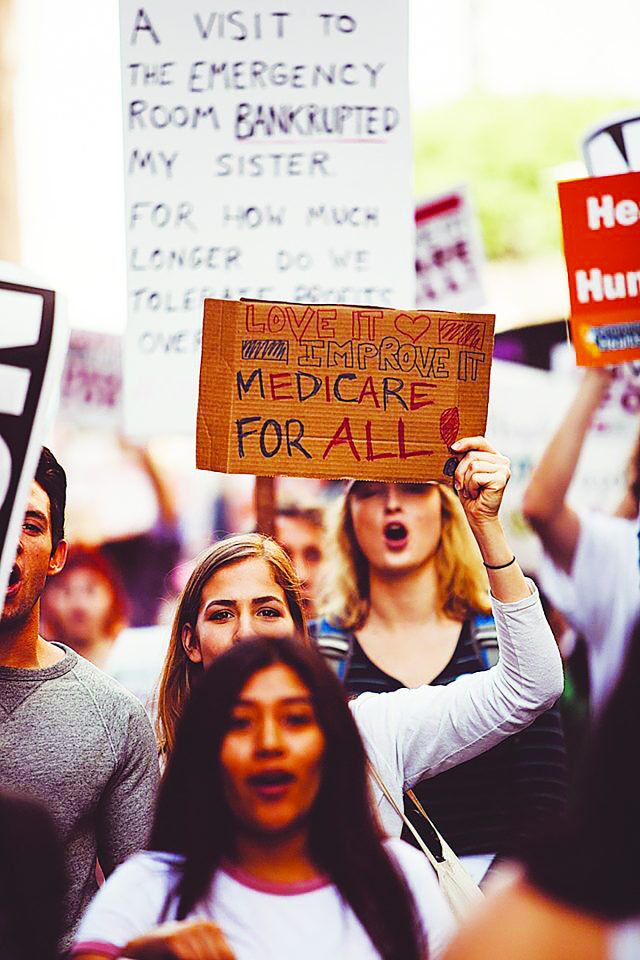
When it comes to healthcare, we are bombarded with misinformation and gaslighting. In 2019, the editors of more than two dozen scientific journals around the planet published an editorial to “sound the alarm that human lives are at stake” because of medical misinformation.
These physicians regularly encountered patients hesitant to take potentially life saving medications based on something they read online or saw on TV or heard from friends.
Then the COVID pandemic happened and a tsunami of BS followed. The anti-vaccination movement (encouraged by the far right) and an idiotically irresponsible Trump administration gave us much needless sickness and death.
There’s also the profit-driven, bad-faith misinformation of the medical-industrial complex (which includes insurance companies, Big Pharma, hospitals and medical device firms). Many years ago, former Congressman Jim McDermott (D-WA) said it was “bigger than the military-industrial complex.” It’s the biggest obstacle to the U.S. instituting a national health care system like all the other developed countries.
Paula Noonan tracks all the bills coming out of our state legislature on her website Colorado Capitol Watch. She told me she noticed legislators end up proposing good health care reforms that deal with lots of bits and pieces. In her column in Colorado Politics, she notes:
“Some issues never go away. We lack the will to fix them, the issues are too big and complicated, and/or legislators and the Governor will only nibble at the edges rather than take the big bite. Health care in its various forms and impacts falls into each no-fix category.”
She surveys several worthy healthcare bills of this kind and then notes the exception that “may provide some clarity on resolving most health care coverage problems.” That would be HB 1209, Analyze Statewide Publicly Financed Health Care. She concludes:
“Nibbles at health care have produced a chaotic, indescribably complicated system that’s left 300,000 Coloradans without health insurance. Undoubtedly health care will always be on the state’s legislative agenda. But so many bills to ‘fix’ a system that everyone will use at some point probably means the system, as is, is beyond repair.”
Noonan also lists the lobbyists interested in bills. Many lobbyists from the medical-industrial complex (and other business interests) are opposing HB 1209. Mental Health Colorado and the Cross-Disability Coalition are among the supporters.
Young Invincibles (YI) is another group supporting the bill. They’re a national nonpartisan nonprofit that works to uplift the voices of young adults 18-34 in the political process.
Their name is an ironic comment on an insurance industry term for young people who feel they are immune to sickness and injury. They know they aren’t invincible. YI is also concerned with higher education, economic security, mental health and civic engagement issues.
HB 1209 asks the Colorado School of Public Health to study the impacts of a universal health care system in Colorado to individual and community health and to the health care workforce.
The bill was introduced by Reps. Andrew Boesenecker (Fort Collins) and Karen McCormick (Longmont) in the House and Sen. Sonya Jaquez Lewis (Longmont) in the Senate. All are Democrats.
I talked with Boesenecker over the phone as he drove home after lengthy Republican filibustering of bills over an exhausting couple of days. The Democrats have a solid majority in the legislature but the Republicans are hoping to slow things down. Boesenecker is majority co-whip.
Boesenecker is a musician and former public school music teacher. He is also a former Lutheran pastor. He was a chaplain at the Northern Colorado Medical Center in Greeley and saw people in the burn unit, intensive care and pediatrics. He had “countless conversations” with patients who were anxious about the cost of their health care and their ability to pay for essential procedures.
Boesenecker said HB 1209 is an outgrowth of a 91-page study in 2021 by the Colorado School of Public Health which concluded that a publicly financed and privately delivered system could provide health coverage to every resident, increase employment and improve overall population health. At the same time, we would spend billions less than we are spending now on health care. Such a system is called single payer.
The state legislature commissioned the study in 2019 which had a task force with bipartisan membership appointed by the governor and both parties’ leadership.
Health care should be a human right and a public good rather than as a commodity. Many millions of people are driven into poverty each year because of health care costs. Time for Big Change.














